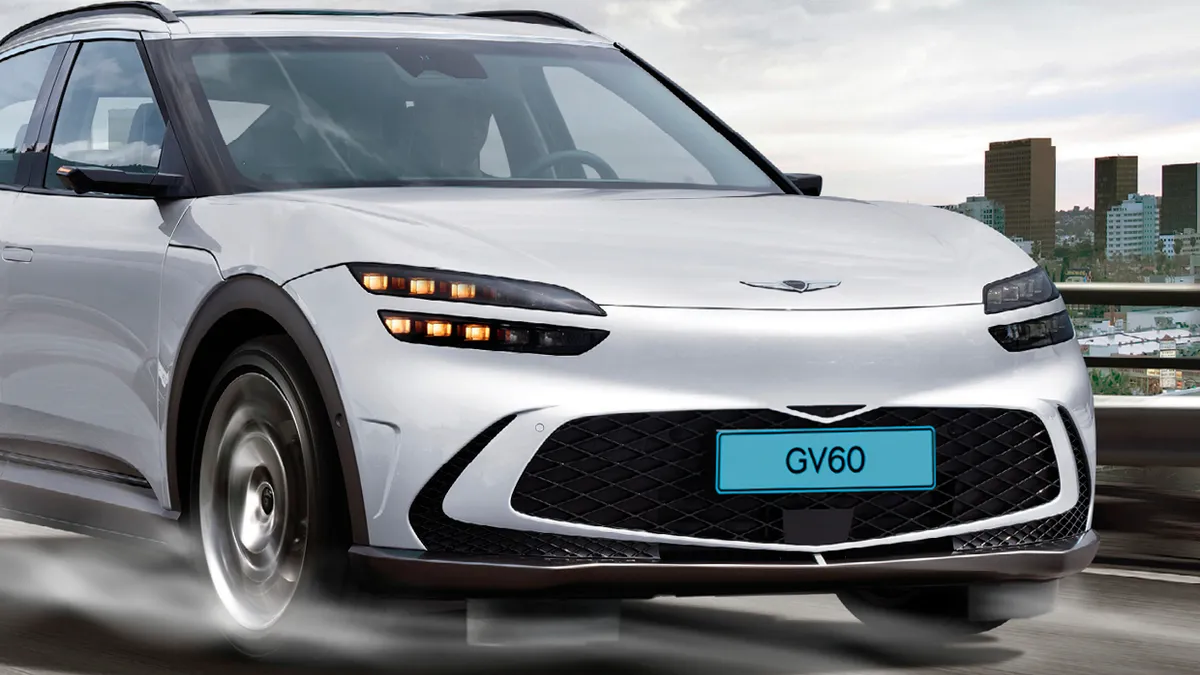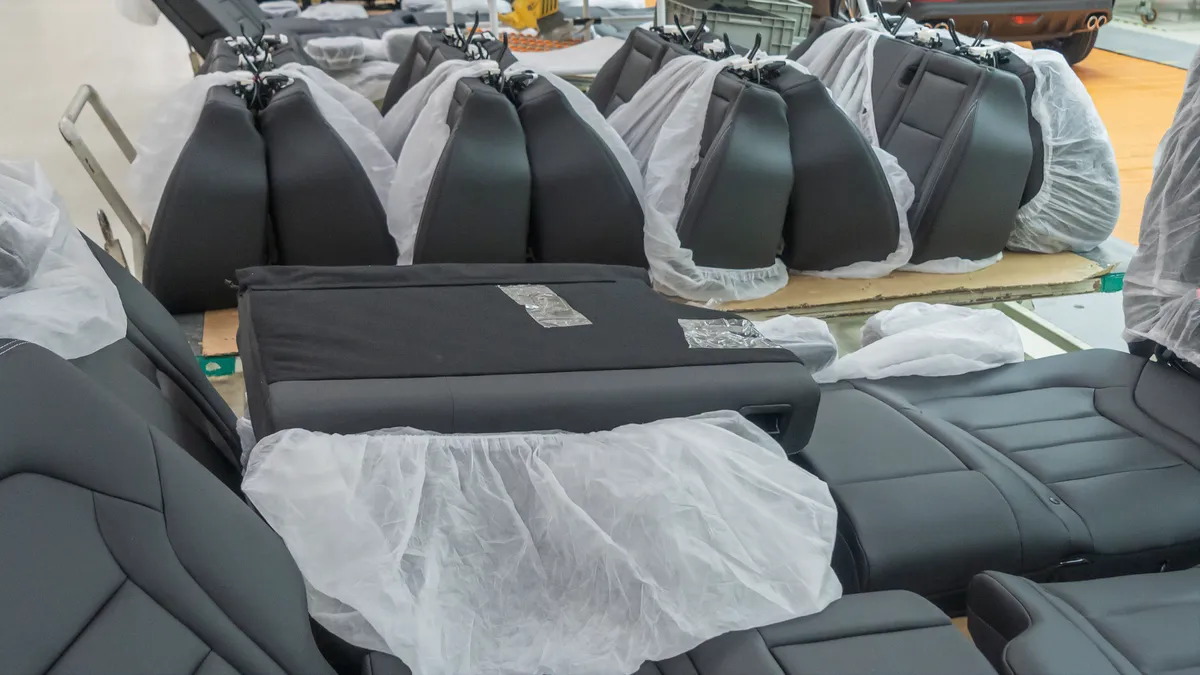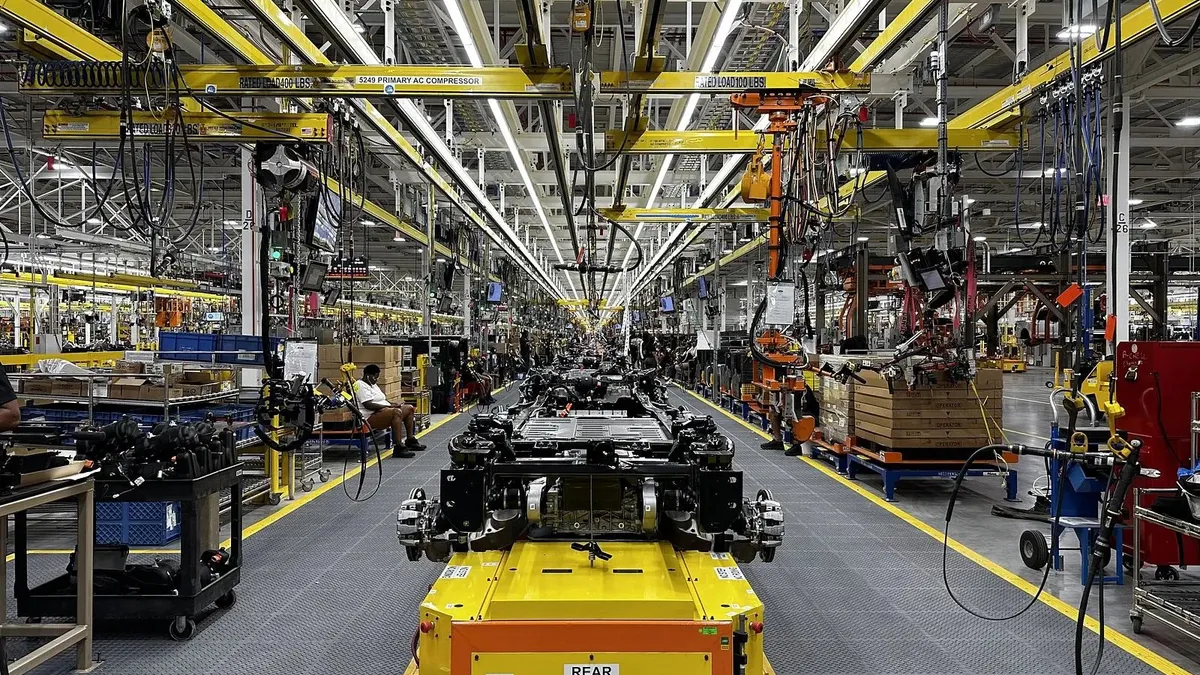Dive Brief:
- Hyundai and Kia unveiled new ‘Active Air Skirt’ (AAS) technology for electric vehicles that reduces aerodynamic resistance generated when traveling at highway speeds, the companies announced in a press release Monday.
- The technology can improve the range of electric vehicles by reducing the air turbulence in front of the vehicle. It also improves driving stability and reduces wind noise.
- Hyundai Motor and Kia have tested the AAS on the electric Genesis GV60 SUV and successfully reduced the vehicle’s drag coefficient by 0.008, improving drag by 2.8%, which the automakers expect to improve range by around 6 km.
Dive Insight:
Automakers are continuously looking for new ways to boost the efficiency of EVs through manufacturing improvements, including software to improve powertrain and battery efficiency or designing more aerodynamic body styles.
The AAS is well suited for SUVs, which tend to have worse aerodynamics due to their boxier designs and higher ground clearance. This includes vehicles like the Hyundai Palisades, which is one of Hyundai’s best selling SUVs with 2023 sales up 8% year over year.
“This technology is expected to have a greater effect on models such as SUVs where it is difficult to improve aerodynamic performance,” said Sun Hyung Cho, Vice President and Head of the Mobility Body Development Group at Hyundai Motor Group, in a statement. “We will continue to strive to improve the driving performance and stability of electric vehicles through improvements in aerodynamics.”
The new AAS is one of several advancements the two automakers are working on to improve aerodynamic efficiency. Hyundai’s Ioniq 6 electric sedan, for example, features a rear spoiler, active air flaps, wheel air curtains, wheel gap reducers and separation traps to reduce the EV’s drag coefficient.
With these various additions, the IONIQ 6 achieved a 0.21 drag coefficient. Its aerodynamic efficiency is on par with the Lucid Air sedan, which Lucid claims is the world's most aerodynamic production vehicle.
Hyundai Motor and Kia have applied for patents in South Korea and the United States for the AAS. After durability and performance tests, the two automakers are considering mass production of the technology.














